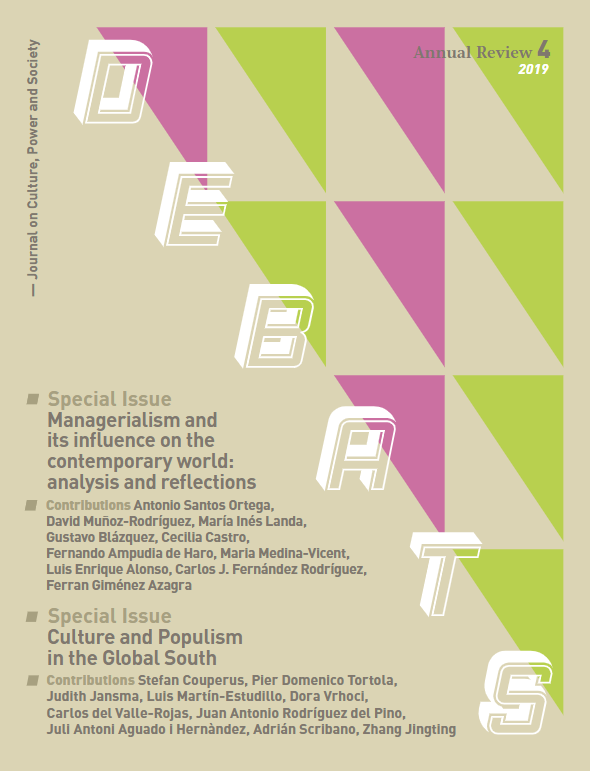Paradise Lost: Explaining Populism as a Response to the Fragmentary Nature of Time, Space, and the Rapid Pace of Technological Advancement
DOI:
https://doi.org/10.28939/iam.debats-en.2019-12Resum
Contemporary societies and technologies are evolving at an ever-swifter pace. Advances in the field of Augmented Reality (AR) and in Computer Science at large have led to games that let us immerse ourselves in worlds stuffed with zombies, robots, or pokemon critters. Globalization is making the world ever more interconnected, and the development of diverse social media platforms is changing the way people engage with politics and culture in their daily lives. Time and space have arguably never been more liquid, fragmentary, and compressed. Against this host of developments, Postmodern ideas on the fragmentation of time and space,
the rupture in personal and national identity narratives, as well as the concept of «utopia,» can provide theoretical tools, shedding light on how various agents react to the rapid pace of technological change (such as Information and Communications Technology (ICT) and digitalization), and subsequent alterations in Man’s perception of time and space. This paper reconstructs the key tenets of Postmodern thinking on cultural phenomena, showing how the changing experience of time and space (induced by globalization, and technological advances) bear on the recent successes of populist parties in Europe and beyond. Furthermore, the paper places populists’ narrative of and nostalgic mourning for an ideal past in a longer continuum of utopian and dystopian thinking. This is then interpreted as an attempt to build a vision of a homeostatic space that, once conceptualized as a rhetorical tool, serves to forge
bonds among ‘(good) people
Descàrregues
Descàrregues
Publicades
Com citar
Número
Secció
Llicència
Sense perjudici del que disposa l'article 52 de la Llei 22/1987 d'11 de novembre de Propietat Intel·lectual, BOE del 17 de novembre de 1987, i conforme a aquest, els/les autors o autores cedeix/en a títol gratuït els seus drets d'edició, publicació, distribució i venda sobre l'article, per tal que siga publicat a Debats. Revista sobre cultura, poder i societat.
Debats. Revista de cultura, poder i societat es publica sota el sistema de llicències Creative Commons segons la modalitat “Reconeixement – NoComercial (by-nc): Es permet la generació d’obres derivades sempre que no se’n faça un ús comercial. Tampoc no es pot fer servir l’obra original amb finalitats comercials”.
Així, quan l’autor/a envia la seva col·laboració, accepta explícitament aquesta cessió de drets d’edició i de publicació. Igualment autoritza Debats. Revista de cultura, poder i societat la inclusió del seu treball en un fascicle de la revista perquè es puga distribuir i vendre.











